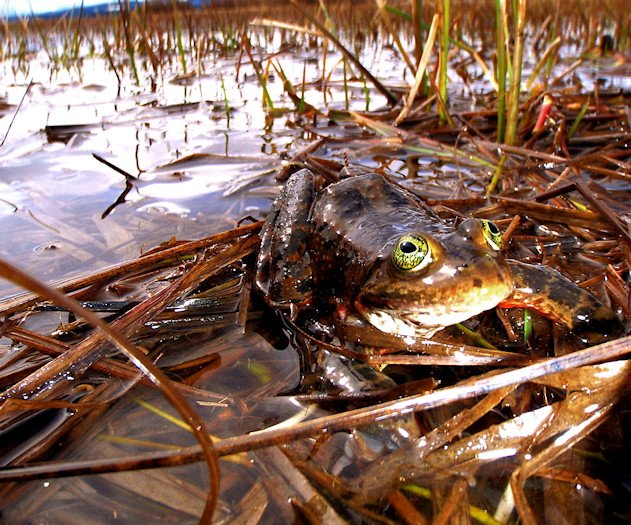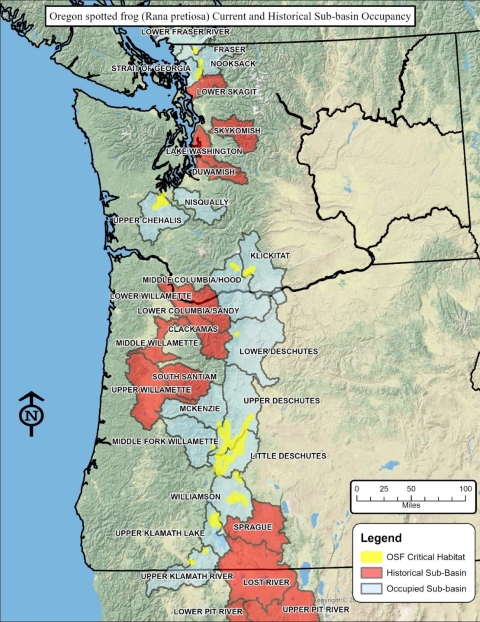USFWS releases draft recovery plan for Oregon spotted frog, begins 60-day public comment period

PORTLAND, Ore. (KTVZ) -- The U.S. Fish and Wildlife Service announced Wednesday the availability of a draft recovery plan for the Oregon spotted frog (Rana pretiosa) and a 60-day public comment period.
The draft recovery plan has two supporting documents that are also available for viewing, the species biological report and recovery implementation strategy.
Earlier this year, the Center for Biological Diversity filed a formal notice of its intent to sue two federal agencies for approving a habitat conservation plan in the upper Deschutes River that it claims fails to ensure the Wickiup Dam won’t drive the threatened Oregon spotted frog extinct in the area.
Here's the rest of Wednesday's USFWS announcement:
The Oregon spotted frog is the most aquatic frog in the Pacific Northwest, living year-round in lakes, ponds, wetlands, riverine oxbows and floodplains, and altered habitats such as farmed floodplains and ditches. Currently they are found in small areas ranging from Southwest British Columbia through the Puget Trough in Washington, and in the Cascade Range from south-central Washington to the Klamath Basin in southern Oregon. Over 76 percent of its former range has been lost and this frog has been extirpated from California.

Oregon spotted frogs are impacted by several threats, including historical and ongoing hydrological and vegetation changes to their habitat, predation by invasive bullfrogs, and from having small and isolated populations. These threats, combined with climate change pose a significant challenge to recovery of this species.
This is the first recovery plan for the species, which was federally listed as threatened in 2014.
Working with its partners, the Service uses a range of conservation tools to recover threatened and endangered species. Recovery plans are one such tool, providing a roadmap for recovery of listed species in coordination with public and private partners. A recovery plan provides guidance on how best to help listed species achieve recovery, but it is not a regulatory document.
The recovery strategy seeks to (1) improve Oregon spotted frog numbers and distribution so that populations are resilient to adverse impacts, (2) preserve genetic diversity to better allow for adaptation to changing conditions, and (3) ensure there are sufficient populations distributed over the range of the species.
The public is invited to provide comment on the draft plan through May 1, 2023.
RECOVERY IMPLEMENTATION STRATEGY
Submitting Comments
To ensure consideration, the agency must receive written comments on or before May 1, 2023. However, they will accept information at any time. Submit your comments on the draft document in writing by any one of the following methods:
- U.S. Mail: Attn: Jennifer O’Reilly, U.S. Fish and Wildlife Service, 2600 SE 98th Avenue, Ste. 100, Portland, OR 97266
- Email: fw1ofwo@fws.gov. Please include “Draft Oregon Spotted Frog Recovery Plan Comments” in the subject line.
You may also obtain a copy of the draft recovery plan online or by U.S. mail. Send a request to Attn: Jennifer O’Reilly, U.S. Fish and Wildlife Service, 2600 SE 98th Avenue, Ste. 100, Portland, OR 97266, by phone (503-231-6179), or by email (fw1ofwo@fws.gov).